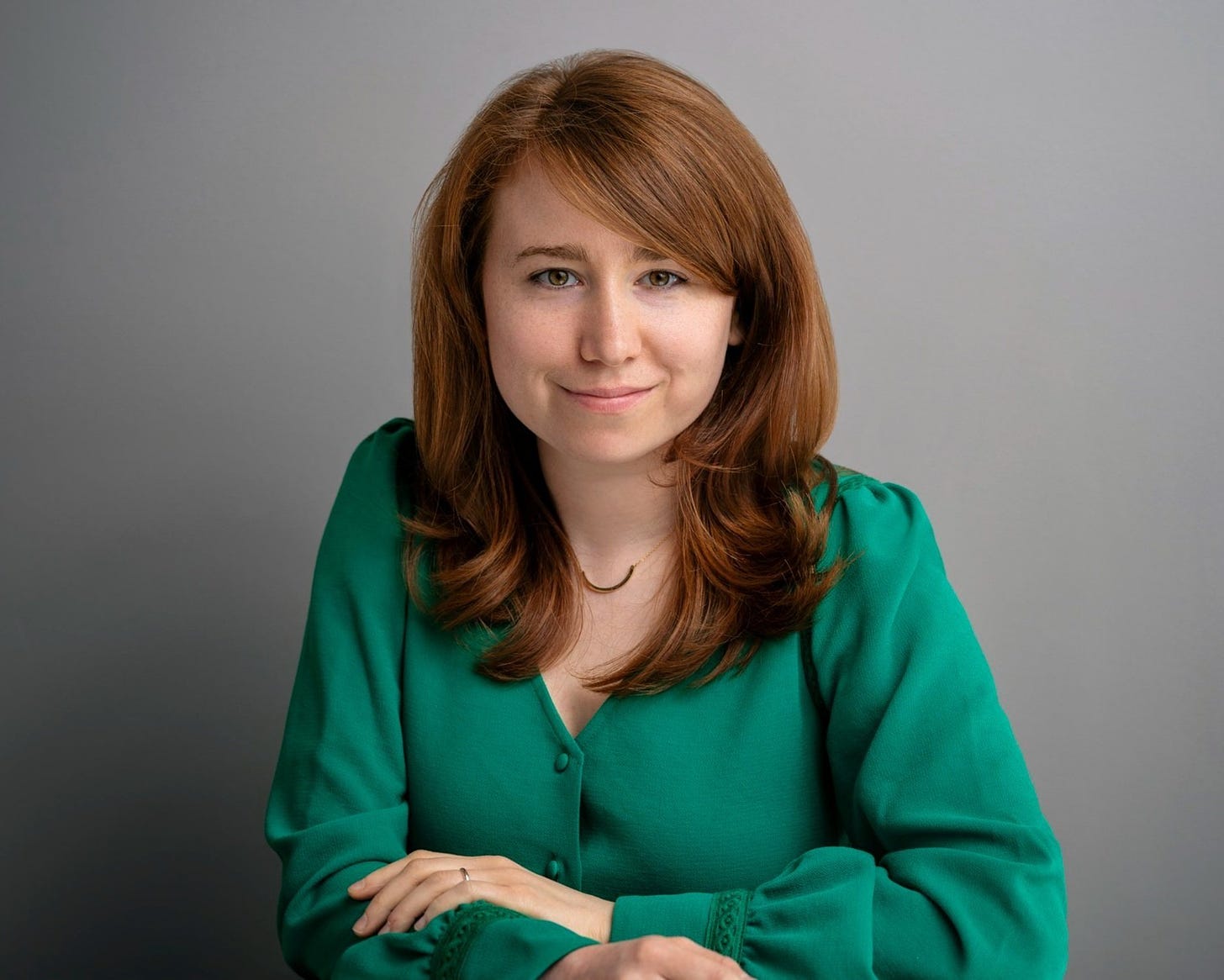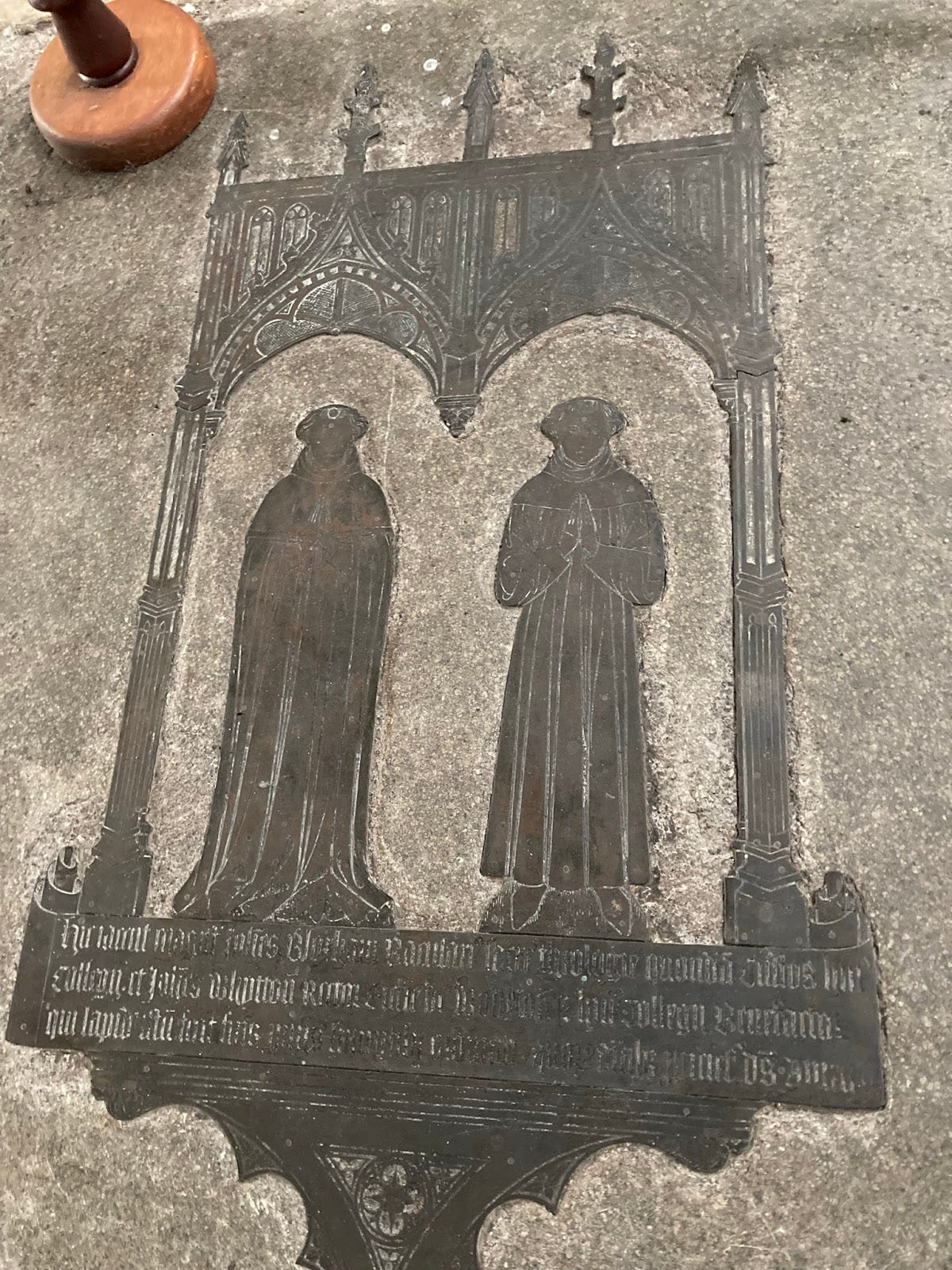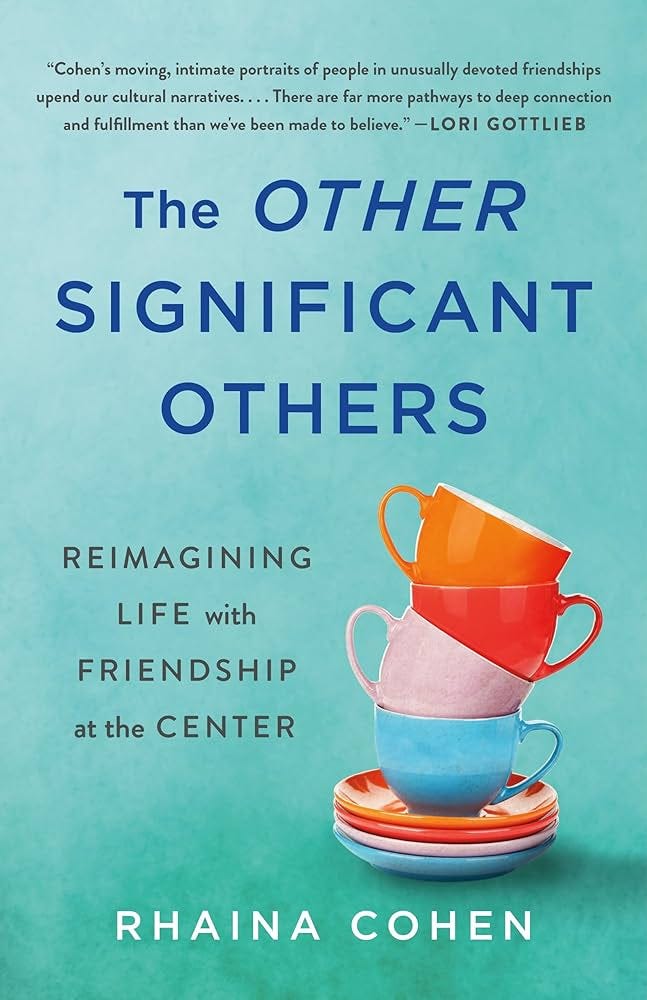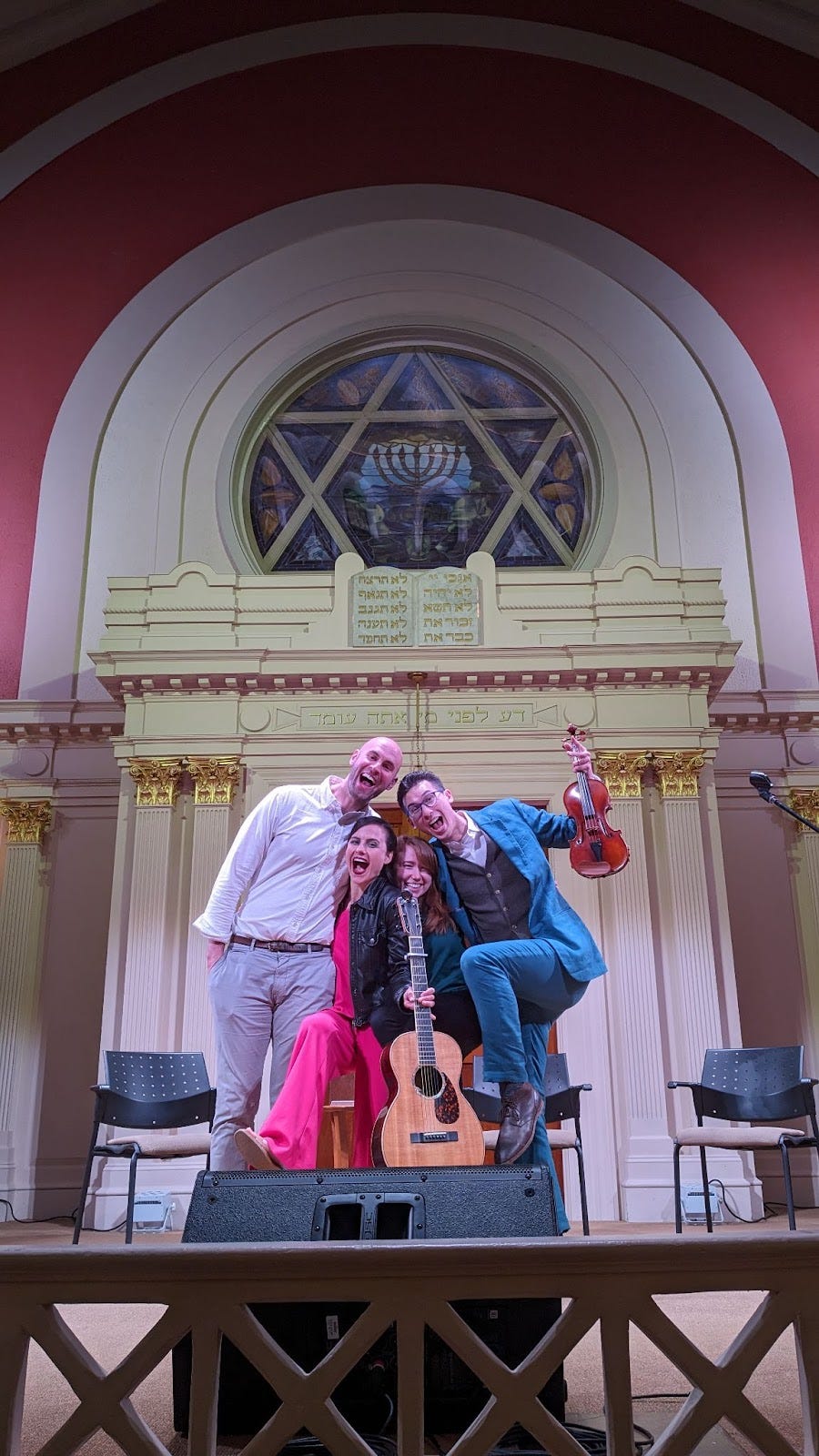Anyone who knows me knows I love my friends. I prioritize them. I take pride in nourishing them. I am nourished by them—meals and herbal tinctures and voice texts and personalized gifts and, most of all, witness over years and years. It’s something I watched my mom prioritize as I was growing up—the sound of women’s laughter wafting up from downstairs late into the night is a hallmark of my girlhood. Without thinking very explicitly about it, I modeled my own life after what I’d seen and heard her do—a rich, intimate family life, made all the richer by a community of deep, diverse friendships.
That’s why I was so drawn to Rhaina Cohen’s new book, The Other Significant Others: Reimagining Life with Friendship at the Center. It is a real treasure—social science, surprising history, and lots of wonderful, textured stories of friendship woven together in a tome that will make you look anew at your relationships and aspire to design a life with radical intentionality. Meet Rhaina…
Courtney Martin: What was the moment you knew that you had to write this book? And why a book -- you’re a radio person, too, so I can imagine you played around with getting this story out in lots of different ways.
Rhaina Cohen: I don’t remember a moment of certainty. I remember asking myself the question, “Maybe I want to write a book??” I had found a topic—life-defining friendships—that didn’t exhaust me no matter how much I thought about it. And the more I dug in, the bigger the project felt. I wanted to cover the millennia-long historical precedent for devoted friendships and how such close friendships shake up our assumptions about romance and partnership and family. I realized that these friendships bring up important legal questions, especially how the law leaves out relationships that aren’t marriage and co-parents who aren’t romantic partners. There was enough material that a book seemed like the right size and shape for it.
Despite my background as a podcast producer, it never occurred to me to make this an audio project. I love the intimacy of audio, but the form has constraints, namely, that you have to limit the number of voices in a story. I thought a topic that had a lot of history and research made more sense to tell in writing.
But I have gotten to help create stories about friendship in sound. It was fun to dig through tape of my interviews as I worked with the producer of NPR’s Up First for this episode about my book. There’s an emotional moment from two people I interview that is powerful to hear; it’s hard to convey its force in writing.
And this story, which I reported a few years ago, about the oddities of friendship among nuns in mid-century convents would not have been as fun or creative if it had been in print. Different storytelling mediums have their pluses and minuses.
You write, “Widening the frame allows us to see that today’s discrete categories and hierarchies are neither innate nor universal; Marriage doesn’t have to rank above friendship. Love doesn’t automatically involve lust. Romantic and platonic feelings aren’t always easy to distinguish. And another: sexual is not the same as erotic.” There’s so much in there, but can you tease out what the dissolution of these categories can do to destable us and maybe even liberate us?
Categories can be incredibly useful for helping us understand the world around us and having shared concepts. I’m well aware of their power because the absence of a well-known category for platonic partnerships has resulted in so much harm to the people I’ve interviewed. The most important relationship in these friends’ lives is invisible or judged by others because it’s incomprehensible to so many others. But categories can create their own problems because they make things appear simpler and more certain than they actually are.
Setting aside such strict categories and hierarchies can be thrilling for many people who have been told there’s only one right way to live (i.e. long term monogamous romantic coupling) and can’t or don’t want to jam their life into a one-size-fits-all box. If you adore your friend and you’d make the perfect co-parents, dissolving these hierarchies opens up space to build a family together. If you’re a widow and the people who you feel most at home with are friends, it’s suddenly acceptable to shape your life around friends. And so on.
If we are willing to lean into the blurriness of categories and hierarchies, we can start to ask ourselves open-ended questions about what we’re feeling and about our relationships.
Questions like: Do you feel closest to someone when you have butterflies around them or when you have a feeling of complete safety? If you were to design your life from scratch, who would you want to see after a long day of work? How many people do you want to orient your life around? It can be scary to ask questions rather than work with a preset template we’re—I write about that exact struggle that a few people in my book faced. But by answering these questions, we can better ask for and pursue lives that suit us, not just operate on an autopilot that may not take us in a direction that’s best for us.
Reading the stories of real contemporary friendships was such a pleasure. The twists and turns delighted me. I had this felt sense of how rich and complex these relationships are. Why don’t we see more documentary material on friendship--it’s so delightful and devastating and all the things good stories need to be?
I wish more people realized that friendships have all the makings of great stories! Instead, our popular culture treats friends as the sidekicks, not characters whose plot is worth following on their own. This is not an exaggeration. I recently spoke to someone who works in television and she described a recent development meeting where someone on staff said they shouldn’t include a character in the show if the character didn’t have a future romantic relationship with another main character. That’s such an impoverished view of what makes a person or a story interesting. The friends who I interviewed—and in many cases, followed for years—show that platonic relationships can be just as exhilarating, complicated and heartbreaking as romantic or familial relationships.
One thing we talked about on the Slate pod was how some of the re-writing of these scripts requires us to be awkward and initiate conversations with friends that feel hard. If you develop a muscle for more intentional friendship conversations, does it get easier over time? I think I’m still a bit under the delusion that marriage requires this, but friendships should be easier, more natural etc.
I think it can get easier once you experience the rewards of an awkward conversation. In these conversations, it’s common for people to discover that the picture they had in their head of the friend’s feelings or intentions were totally off (**raises hand**). Humans are pretty terrible mind-readers, so these discussions can clarify things and, as a result, bring friends closer. And if you experience this benefit, you can at least go into the next conversation knowing that there’s something to gain from the awkwardness. You’re also likely to be more skilled at holding these conversations once you've had practice, just as we sharpen any skill through repetition.
I don’t want to sugarcoat it, though. Friends don’t have great infrastructure for support for conversations like these. It’s rare, for instance, to go to couples counseling for friendship. We’re finally starting to see a wave of how-to books about navigating the complexities of friendship (e.g. Platonic and a couple of books that are coming out this spring). So if it feels tricky and uncomfortable to have such an open conversation with a friend, know that you’re not doing anything wrong.
What are your favorite songs about friendships and/or movies about friendship?
The movie Booksmart was a riot. Now that I think of it, I love the genre of absurd movies about obsessive friendship, including Bottoms and Bridesmaids. I was touched by a movie called Together Together, which is about a single-father-to-be and the surrogate he befriends. You haven’t asked about books, but I’ll just note that I’m tearing through the novel All This Could Be Different, which leans into the intricacies of friendship.
As for music, the song “Old Friends” by Ben Rector makes me emotional when I think about longtime friends. The lyrics that really get me are “You can grow up, make new ones/But truth is there’s nothing like old friends/'Cause you can’t make old friends.”
I started compiling songs about friends in this playlist, and you’ll notice it’s not that long of a list. (Though I’d gladly take recommendations from your readers for more to add!) I think we desperately need more songs about friendship. Think about how many songs we have about falling in romantic love and being crushed by romantic heartbreak. Now how many songs capture the intensity of emotions we can feel for our friends?
In part because of our need for more songs about friendship, friends of mine who are musicians made a song about friendship that’s based on the book. The song, “Dear Friend” has almost continually been stuck in my head since they first played it for me a few weeks ago. (The photo below is of me and my friends on stage after my DC book launch this week—they performed the song there.) I highly encourage you to listen to “Dear Friends” and share it with the platonic love of your life.
Is that the coolest? We have donated $250 to Give Directly in honor of Rhaina’s labor.
Buy Rhaina’s wonderful book here, and if you want to hear her voice, listen to our podcast conversation here. And please please please tell us about your deep and wide friendships in comments.








I really loved the book and am so glad Rhaina chose to present it as a book. The thing about a book with a lot of content is that one can digest the material, the sentences, at ones own pace in a way that doesn't work nearly as well in audio. One can hold it in hand, pause, live with it, write in it, and imagine around it.
I have had three really big friendships in my life. One has been a friendship of 53 years, a person from my freshman dorm. Another I met in grad school in 1977. A third I met at work in 1981.
I don't have, and have never had, a large circle of friends. But I have had the best.
I wouldn't be who I am without my friends, full stop. Marriage confounded me, honestly. But friendship is like breathing. My oldest friend, Lisa, has been with me since we were 13-- 39 years. I still remember the dress she was wearing the first day I saw her in middle school (White fitted bodice, full skirt, fluorescent accents, peek-a-boo bow in the back. It was 1985.). We've been together through cross-country moves, international adventures, frustrations, fights, marriages, divorce, the raising of both my kids, the building of her career, her mom's suicide, my dad's death, her rape, my alienation from my family due to a history of sexual abuse.
Similar could be said of my second oldest friend, Carrie. We're working on 37 years together. And my friend Becki and I are staring down twenty years. She's my housemate currently and it's the best living situation I've ever had as an adult. If I could construct my perfect world, she would live with me forever and any romantic partner I have would live next door. When we are older we'd build an Ewok village outside of town and have our own separate tree houses with walkways between. I seriously can't imagine anything more blissful.